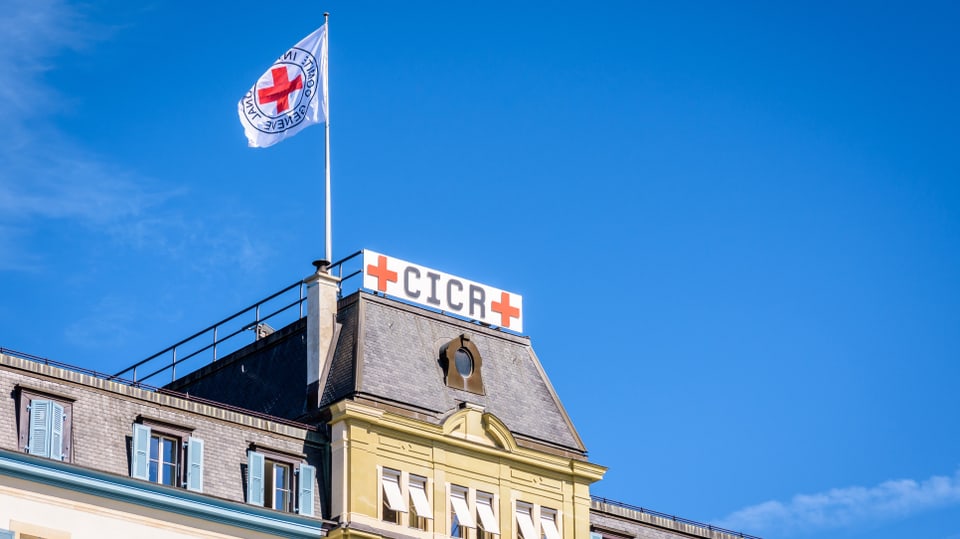Contents
The gap between what the Red Cross should do and what it can do is growing.
The cuts at the International Committee of the Red Cross (ICRC) will continue in 2024. After the ICRC had to significantly reduce the number of positions and the scope of aid operations in 2023, this will continue in the coming year. At the headquarters in Geneva alone, 270 jobs will disappear again.
Legend:
The headquarters of the ICRC in Geneva. 270 jobs will be cut here.
Getty Images iStock/Olivier Rateau
The ICRC’s budget will shrink by a further 13 percent in 2024, Director General Robert Mardini announced. This is despite the fact that the number and duration of conflicts and the corresponding need for humanitarian aid are increasing.
The gap between what the ICRC should do and what it can achieve is growing. The UN and other aid organizations also note the same thing. In addition, high inflation in many countries is driving up the costs of aid supplies and wages massively.
Fundraising is becoming more difficult
Now the worldwide willingness to donate is obviously reaching its limits. The ICRC’s activities are mainly financed by a few Western countries. Efforts to bring new donors on board, such as wealthy emerging economies, private companies and wealthy individuals, are being intensified, but have so far had little success.
The Red Cross has to cut staff: At the headquarters in Geneva alone, 270 jobs will be lost – almost a quarter. The cuts are even more drastic in foreign delegations, where most of the ICRC’s staff work. Exact figures will be available in November. The leading humanitarian organization has to reduce the number and scope of its aid operations accordingly.
Which services will be canceled?
Prioritization becomes essential. If possible, we do not want to reduce activities that the ICRC runs exclusively because it is the only organization with an international mandate for this, such as prisoner visits. The cuts are likely to be most significant in long-term operations, which states, development organizations or the UN could also take on. However, the question is whether they will step into the breach, especially since some of them are also under great pressure to save.
As a result, less humanitarian aid is already being provided than is necessary. In the coming year, the deficit is likely to become even greater. The situation is frustrating for aid organizations. A sign of this: ICRC Director General Robert Mardini no longer likes. He will not stand for another term in 2024.
